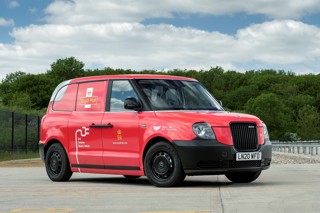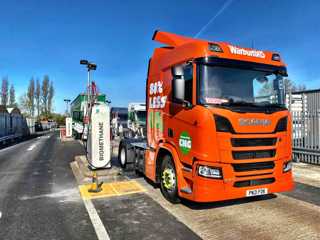Royal Mail is taking on 29 gas-powered trucks as part of its commitment to reducing emissions.
The organisation will introduce the 40-tonne trucks, fuelled by bio-compressed natural gas (Bio-CNG) to its fleet in the north west of England, in addition to the two already in operation.
The vehicles, which are designed to carry mail and equipment of all shapes and sizes, can be used on most roads and highways and can be driven up to 400 miles at a time.
James Baker, chief engineer and fleet director at Royal Mail, said: “As a company, we are committed to making changes to our operations that reduce our environmental impact.
“Bio-CNG is a significantly more cost-effective and lower carbon alternative fuel to diesel for heavy goods vehicles.
“These vehicles enable us to deliver large payloads of parcels in the most environmentally-friendly way possible.”
Philip Field, chief executive officer of CNG Fuels, said: “CNG Fuels is delighted to support Royal Mail’s continued rollout of Bio-CNG trucks through our rapidly expanding network of large public access Bio-CNG stations.
“By running on our 100% renewable and sustainable biomethane fuel, Royal Mail will achieve more than 85% reduction in greenhouse gas emissions.”
The new trucks will operate from Warrington, Chorley and Preston, where refuelling facilities are located nearby.
Bio-CNG refuelling facilities are due to be expanded in locations across the UK in coming years.
Royal Mail originally tested gas-powered trucks in 2017 and, following a successful trial, two trucks were introduced to its fleet on a permanent basis in 2019/2020.
It is estimated these two trucks have saved approximately 107 tonnes of CO2 each year.
Bio-CNG vehicles also offer a 99% reduction in particulate matter compared to their diesel equivalents.
Royal Mail is also introducing electric vehicles to cut its emissions, and is taking part in the Optimise Prime trial.
It is also rolling out a telematics system to improve fleet efficiency.
























Login to comment
Comments
No comments have been made yet.